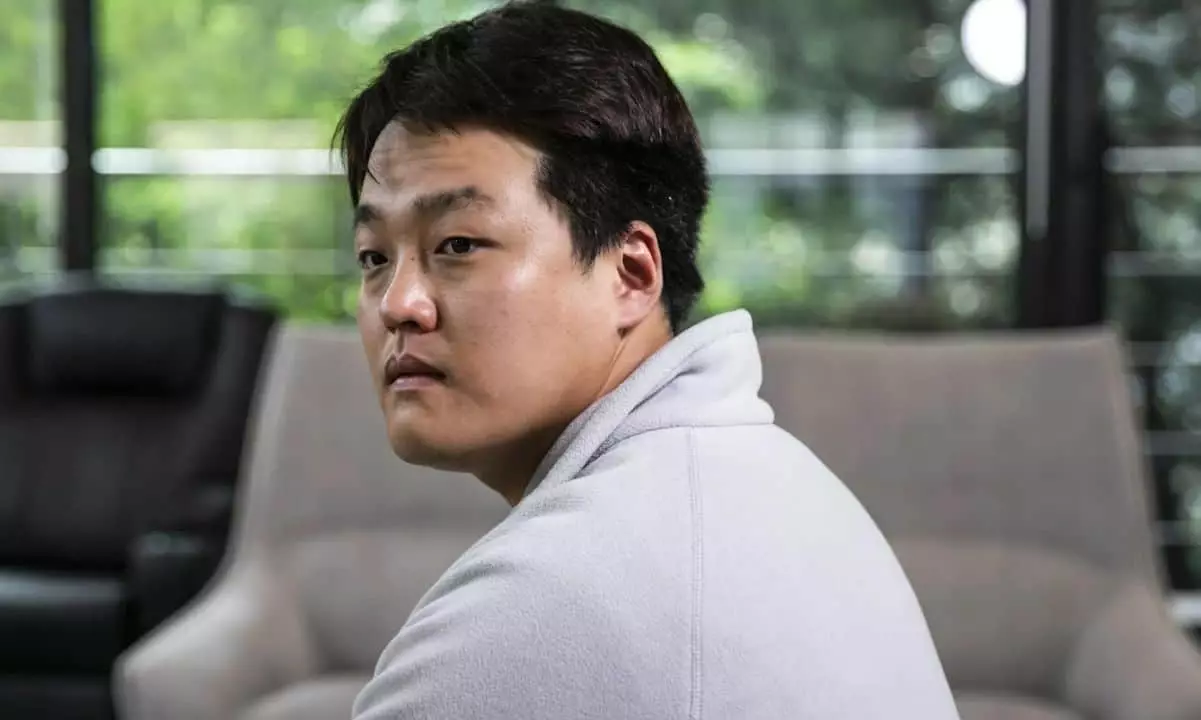In the aftermath of the TerraUSD and Luna cryptocurrency collapse, U.S. prosecutors have made significant allegations against Do Kwon, co-founder of Terraform Labs. The fallout of this catastrophic event has reportedly impacted over one million individuals and entities—a staggering number that underscores the far-reaching implications of digital currency investments gone awry. The complexity of the situation has prompted acting U.S. Attorney Daniel Gitner to reveal in a recent court filing that accurately quantifying the victims of Kwon’s alleged malfeasance is inherently challenging due to the volume and varied nature of transactions that occurred.
The estimated numbers highlight a critical issue in today’s unregulated financial landscape: a lack of transparency and accountability that can ensnare investors, often leaving them vulnerable. The statement from Gitner outlines a strategy intended to address this issue under the Justice for All Act of 2004, as authorities attempt to keep victims informed of their rights amid an evolving legal battle.
At the crux of the prosecution’s case against Kwon is the allegation that he misrepresented Terraform Labs as a decentralized and innovative financial ecosystem. Prosecutors contend that he falsely portrayed the Terra ecosystem as an autonomous entity functioning through blockchain technology and community governance, while in truth, it was heavily managed by him and his associates. The indictment paints a picture of a carefully crafted façade—built on “lies” and “deceptive tactics”—that misled investors into believing they were part of a groundbreaking platform.
The implications of Kwon’s actions are severe: losses have exceeded $40 billion for investors following the collapse in May 2022. This alarming figure illustrates the sort of risk that cryptocurrency investors face in an environment marked by inadequate regulation and oversight. The charges against Kwon, which include commodities fraud, securities fraud, and conspiracy to commit money laundering, further reflect the gravity of the situation.
Kwon’s evasion of authorities following the collapse added another layer of intrigue to his case. As he managed to remain a fugitive until his capture in Montenegro in 2023, both South Korean and U.S. officials launched simultaneous extradition requests, highlighting the international ramifications of the scandal. He was ultimately extradited to the United States in December 2024, where he now faces multiple criminal counts in a legal landscape that is already growing more complex.
In addition to state-level criminal proceedings, the Securities and Exchange Commission (SEC) has pursued a civil fraud case against him and Terraform Labs, resulting in a monumental $4.5 billion settlement. Kwon’s legal troubles paint a broader picture of the potential pitfalls within the cryptocurrency market as regulators step up efforts to enforce compliance and accountability.
As Kwon awaits his next court date, the potential outcomes of this high-stakes legal battle could resonate throughout the cryptocurrency industry and beyond. His not guilty plea and ongoing detention mark just the beginning of what is likely to be a protracted judicial process. With the court scheduled to reconvene soon, many will be watching closely—for both Kwon’s fate and the implications his case holds for the future of cryptocurrency regulation in the United States. The Terra collapse serves as a cautionary tale, emphasizing the need for investors to exercise diligence and understanding in the ever-evolving landscape of digital finance.










